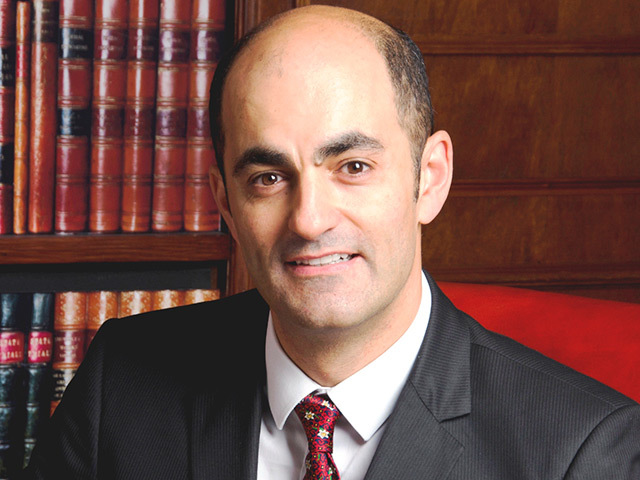
The Russian Federation is playing a chess game with Ukraine that threatens to destabilize energy supplies to economies located west of Russia and their regional energy markets.
Vladimir Putin, aka “Vova” in Russia, is less concerned to being blamed for playing with international law, violating the Charter of the United Nations, and the OSCE’s Helsinki Final Act, than to see his 2010 predatory Gazprom-labelled gas agreements with Ukraine being subject to a new round of negotiations.
Prior to the latest Russian incursions and illegal annexation of Crimea, Vova had orchestrated a contractual trap on natural gas against Ukraine which, if frustrated, could backfire all the way to the end consumers of Western Europe.
In April 2010, Ukraine’s now ousted president Yanoukovich agreed to extend by 25 years the lease to Russia of the Black Sea naval port of Sevastopol. In return, Ukraine received a 30% “discount” on Russian gas price imports. At the time, Yushchenko’s successor was determined to restore relations with the Russian Federation following a period marred in diplomatic tensions and political warfare marked by several gas supply crisis and interruptions in 2005, 2006 and 2009.
The April 2010 “Kharkiv Pact” also facilitated a transit deal signed between Russia and Ukraine in October 2010. There were even talks of a joint-venture between Gazprom and the heavily state-subsidized Ukrainian Naftogaz to manage the countries’ pipeline system.
But like with any good chess game, the Ukrainian 2010 gas deal had to include several moves ahead in favour of Vova. The transit and supply agreements with Russia (the Agreements) contain massive imbalances which could only increase the bill for Ukraine by the mere operation of time.
In fact, after 2010, the Russian gas war kept raging through successive revisions on pricing and the Yanoukovich-Vova agreements giving Russia 100% of the lion’s share. Russia’s in-built privilege included increasing the initial bas price for gas shipped to Ukrain with the ultimate target to see Ukrainian pay the extortious base price charged to Europeans as the “European border price”.
The supply contract also included a classic “take or pay” obligation combined to massive penalties in case Ukraine would achieve lower off-takes from Russia. Conversely, the 2010 transit contract did not specify a “ship or pay” obligation or penalties against Russia in case the latter would transit less gas via Ukrainian pipelines and fail to meet its minimum transit volumes which condition the fees payable to Ukraine.
Worse, Russia tied a political leash over Ukraine by securing its soring Agreements through a discount over which Russia would exercise control through its tax policy. Russia’s 30% Ukrainian “discount” is not the result of Gazprom’s commercial discretion. This discount comes from the Russian parliament’s 2010 resolution exempting Gazprom’s shipments to Ukraine from export duty. The 30% discount is therefore a political weapon against Ukraine. So long as Yanoukovich and his lot ruled the “border land”, the Ukrainian discount and the rest of the lion’s share were reasonably acceptable to the Kremlin.
As soon as the Vova-despised Yanoukovich got toppled by citizens uprising, the Russian parliament received the order to cancel the tax exemption and claim back all past discounted export duty. Parliamentary votes took place in the two Russian chambers on the 31st of March and 1st of April 2014 and the bill was immediately notified to the debt-ridden Ukraine for an additional $11.4 billion.
Adding insult to injury, Vova imposed on Ukraine an 80% price increase on gas and ordered the immediate payment of the country’s $.7 billion energy debt to Russia.
Yet, Vova’s nauseous chess game does not end there. By attacking Ukraine, the Russian Federation challenges the European Union’s economies which external gas supplies include a 30%-overall dependence on Russian gas. The Russian ruler certainly knows that the European Union is already working on reducing its dependence on Russian gas exports. The Union could turn to Norway and Algeria to increase its gas supplies and stockpiles.
It could also seek to secure more imports from other LNG suppliers. This strategy will, however, rapidly prove to be short-sighted. The supply and demand of gas rest on structurally-stiff regional markets with infrastructure and delivery routes that are difficult and costly to modify. Gas shipments are also highly market-sensitive and organised according to the price their end-users are ready to pay. Qatar’s LNG-tankers go massively to Japan and Asia, where the price of gas is currently extremely high, as a result of the Fukushima incident and the need to reduce Japan’s dependence on nuclear.
Natural gas from US shales may be identified for shipment but the infrastructure is under construction and the proposed US-EU Transatlantic Trade and Investment Partnership is a vital pre-requisite in order to make US natural gas exports both legal and a business reality. In fact, neither the regional gas markets nor the US’s energy export capacity have grown up to a point that the European Union could do without the gas coming from Russia. In the short or even medium term, there will not be much change in the gas-supply game.
New gas infrastructure take years to build and so do LNG tankers and terminals. Vova’s nauseous chess game certainly sends a wake-up call to industrial and developing nations that their energy security is currently being threatened. It is a staunch warning that should certainly lead them to speed up all energy transition programmes, encourage more domestic onshore and offshore exploration and production and increase their energy efficiency.
Nicolas Maulet is a lecturer in energy law and policy, and dispute resolution in oil and gas contracting, at Robert Gordon University’s (RGU) Aberdeen Business School. He is also the deputy course leader on the oil and gas law LL.M.
Recommended for you
